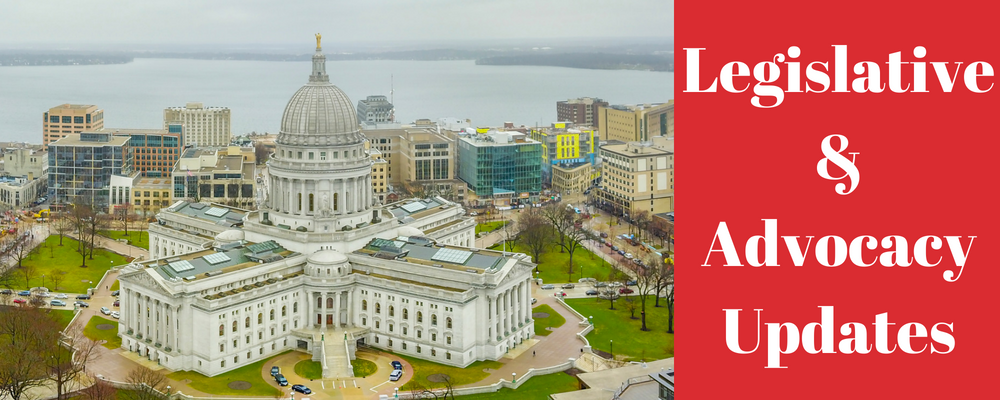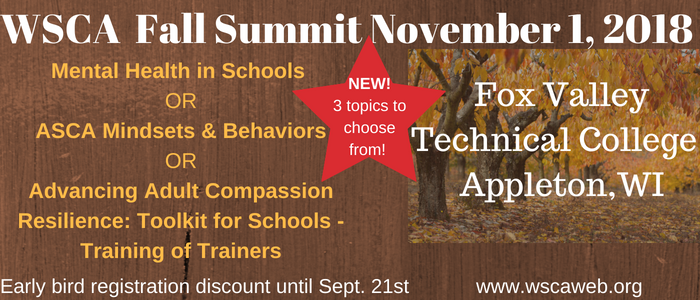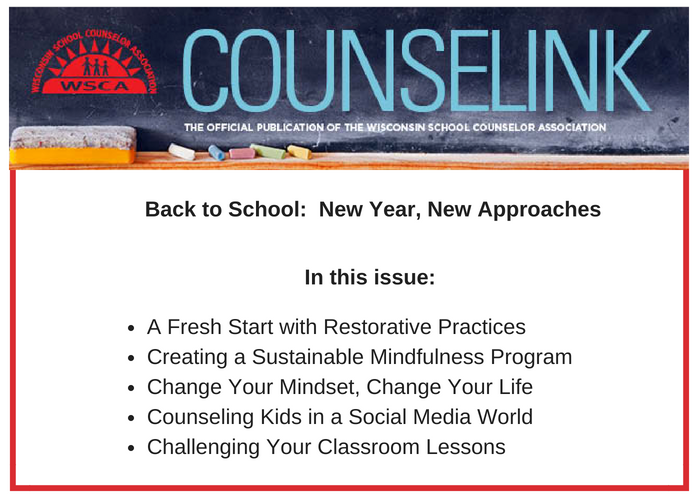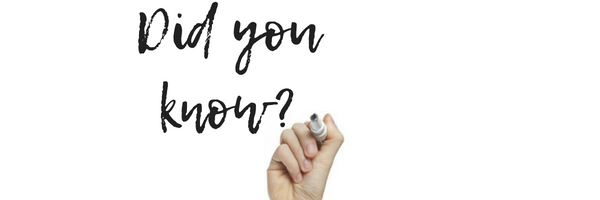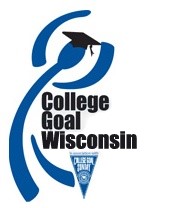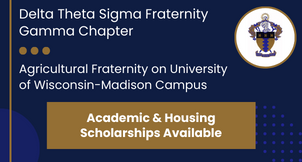September 2018

In This Issue:
A Message from Your DPI School Counseling Consultant
A Message from the WSCA Board
A “Flashlight” is the Answer to Data Collection
Legislative Update – Advocacy Alert
Fall Summit
Help Us Help You
ASCA National Model Helpful Tips
Counselink
College Goal Wisconsin
Tell Us Your Story
Upcoming Events and Committee Updates
It’s a Budget Year: School Counseling’s Connections to DPI’s Budget Request
A Message from Your DPI School Counseling Consultant, Gregg Curtis
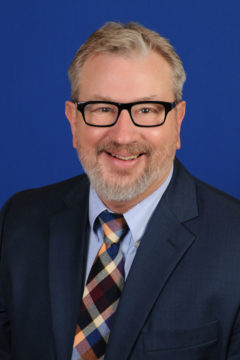
1. Student mental health,
2. Student supports,
3. Special education, and
4. Funding reform
This increase includes $10 million to fund collaborative grants bringing schools and community providers together. It also includes a request for $44 million dollars to increase the numbers of school counselors, school psychologists, school social workers, and school nurses. While the 2017-19 budget provided $3 million dollars in support to increase school social workers, this new request broadens the way funding can be used to meet the needs of communities, students, and families. An addition $5 million is requested to help schools implement peer-to-peer programs focused on preventing youth suicide.
The connections of this area of the budget request to our work are unmistakable. With more counselors, more partners, and more programming, the work we do to support students will improve and grow exponentially.More information:
Student Mental Health Web Page
School Mental Health Infographic
The second of the four major 2019-21 budget requests focuses on expanding crucial student supports. This package is highlighted by expanded gifted and talented funds (targeted toward growing the program’s reach in underserved populations), additional support for English learners, new dollars for school breakfast, and a revenue limit exemption to remediate lead contamination in schools.This is perhaps the second most explicit connection of our work to the budget. As we dig into this area, our leadership in the implementation of Academic and Career Planning comes to the forefront. Helping students know themselves, explore opportunities, and make/execute plans for success gives counselors the unique position of benefiting from this area. From the funding requested for increased robotics and gifted/talented programming to money for building language skills to dollars for nutritious meals and safer buildings, this area will impact our ACP work as we help students develop knowledge, skills, and habits that will allow them to graduate college and career ready.
More information:
Student Support Web Page
Student Support Infographic
3. Special Education:
After decades of cutting or freezing support, Wisconsin provides less reimbursement to local schools for special education than any other state in the nation. In order to pay for these required services, school districts have to make difficult decisions, even reducing or cutting other opportunities for students.
School counselors serve all students and support everything from social emotional development to academic and career planning. When done within a multi-level system of support framework, counselors often work intimately with students of higher needs and participate in IEP team meetings. An increase in special education funding (along with an increase in the number of pupil service providers) would allow counselors to become more of a resource than they are currently able to be.
More information:
Special Education Web Page
Special Education Infographic
4. Funding Reform:
Wisconsin’s school funding system has many broken elements, impacting students all over the state. For example, it provides some districts with vastly fewer resources per student than other districts with similar characteristics. Reforming the system will help all districts to provide the educational opportunities to help students grow into adults who have the ability to benefit our communities.
While on the surface it may appear that the funding reform area is least connected to our work, we must remember that as a district employee, we are all impacted by the funding available to school districts. Though we may not be involved in the business aspect of education, we rely heavily on others to manage budgets, move funds, and make decisions that affect how well we are able to do our jobs.
More information:
Funding Reform Web Page
Funding Reform Infographic
A Message from the WSCA Board
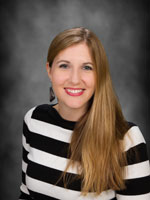
Welcome to the 2018-2019 school year!
Each month, a member of the WSCA Board will be providing an update on our work, our role, and how we support the WSCA mission. While the new school year is just launching for our students, the work of WSCA is ongoing. In fact, preparations for the 2019-2020 school year are already underway!
In the beginning of October, the application for Board elections will be made available. This is an exciting process for us and we encourage WSCA members to consider applying to join our team of board members for strategic planning, learning, and fun! In preparation for this, I would love to share a few things about being on the board, and provide some additional details that can help you decide if this is the right fit for you.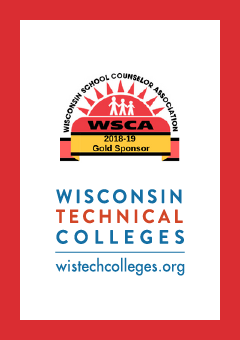
You do not need to be an “expert” to be on the board. We are all learners, and the board is a great way to learn together. In addition, new members on the board will have a veteran member “mentor” them for their first year – answering both the big and little questions you may have.
We value diverse perspectives, and recognize that counselors and schools have different challenges and needs. We want to hear from you, and learn about what YOUR life is like as a counselor. This helps us to best guide the mission and strategic work that we do.
Being on the board is not an overwhelming commitment. We have several meetings throughout the year, but the overall time commitment is incredibly small – especially compared to the hours that our Directors of Operations put in! We focus on the mission, and the Directors focus on making that mission happen. If you like thinking “big picture” and learning, then the board is for you!
You will make lasting friendships. I am in my third year on the board. When I joined the board, I didn’t know anyone else. This is such a welcoming group of people, and I quickly felt comfortable. These counselors have become more than my colleagues – they are my friends.
You will laugh. We have fun together. In our field, we often have to deal with heavy topics and tense situations. Laughing is good. Laughing together is even better.
I LOVE it when counselors approach me at the conference or reach out to me and ask me what it is like being on the board. If you have questions, or if you are on the fence about whether this is right for you, please reach out. I welcome the opportunity to connect!
Adriana Plach
Board Chair
placadr@pewaukeeschools.org
A “Flashlight” is the Answer to Data Collection
Yes, you can teach an old dog new tricks. The pre-conference at the WSCA 2017 School Counselor Conference recruited an outstanding speaker, Dr. Trish Hatch, to help this old dog learn about “The Use of Data in School Counseling”. When most people hear the words data collection they think negatively about hard work and change. The goal of education is still to prepare students for graduation by giving them the skills they need to succeed. The future of education is changing and becoming more accountable with how we teach knowledge and skills to all students for their future choices.
Dr. Hatch collaborated with a team of educators across the country to create the ASCA National Program Model. This model will be adopted by Wisconsin School Counselors in replacement of the previous Wisconsin Developmental Program Model. Dr. Hatch also wrote an easy to follow book, (“The Use of Data n School Counseling”, 2014) which guides school counselors to creating a well organized, and data formulated plan to meet the needs of each student in a school district. This plan takes the model and translates it into action. During the conference, Dr. Hatch was able to “coach” counselors about how to use the book in a step by step process with descriptive examples to create their own district actions.
One component most valuable to use is a concept Dr. Hatch terms the “Flashlight Packages” (p.284). This results based method creates a quick data driven picture of a school’s concern and how it was resolved (or not). The components of a “Flashlight Package” include an action plan, a lesson plan, a curriculum powerpoint, a pre/post test, a standards crosswalk, a results report, and a results powerpoint. These seven components are described in detail with learning targets outlined chapter by chapter. The learning targets help the counselor to work through personal beliefs, understanding others attitudes, choosing knowledge (curriculum) and deciding what skills to teach. These key learning targets help to keep counselors thinking about what our students already know, and show how we can take them into the future. The flashlight package gives this old dog some guidelines to follow. Many different examples in the book helps to show how data collection works to improve attendance, behavior, and even GPA. Making a difference now requires systematic data collection and changes to programing in all schools not just “Random Acts of Guidance”.
I was able to create my own “flashlight” trial in just a few weeks. My research began by taking one grade level and focusing on how I can improve school climate. We have recently had a few playground issues and an attendance concern that I wondered if they may be connected. So I began by creating a climate survey with my 3rd grade co-workers. I heard about a technique at the conference called “Minute meetings,” which helped me gather data from the students and begin looking into what was really going on. Next, my results were graphed into a results powerpoint. I teamed with my teachers, shared the results, and got to work.
I instructed two classroom lessons for the 3rd graders: one on “why attendance is important”, and the second on “Bully Beans” (by Julia Cook) with discussions about how to handle bullying. The teachers also will incorporate a lesson in their religion class. I have not finished analyzing the results yet, but I am excited about our findings and how we are addressing those concerns. I plan to share the completed powerpoint with the rest of my staff and administration. This process demonstrates an intentional approach to working with students. It also shows to all stakeholders that we now have a process to create a positive change in our school.
My long range plans from this process is to attempt to use these techniques (“minute meetings”, data collection, closing the gap lesson plans and a powerpoint) across all the grades school wide. This will create a larger scope to my year-round counseling programing. I will be vigilant about the types of questions I use and what concerns I focus upon. I am creating open listening relationships with all students (including some I may not ever have heard from) through this process. I am now more accountable for the positive change I know I can create. So, if you still hate the word DATA, my second best solution is to name your new dog or pet DATA!
Joanne Powell
Elementary School Counselor
Newman Catholic Schools
Wausau, WI
Hatch, T., Greene-Wilkinson, D., & Holcomb-McCoy, C. (2014). The use of data in school counseling: hatching results for students, programs, and the profession. Thousand Oaks, CA: Corwin, a SAGE Company.
Advocacy Alert!
DPI Lifetime Licensing Changes
(PI 34)Public Input Requested Until September 10th
- Teacher certificates and licenses; administrator and pupil services professional licenses.
- Successful completion of six semesters of experience, for the purpose of receiving a lifetime license.
- Tier III Lifetime License
- Definition of what it means for educators to be regularly employed in education, a condition for maintaining a lifetime license.
Comments may be submitted via Google Form . Questions or additional testimony may also be sent via to adminrules@dpi.wi.gov, or by mail to the Department of Public Instruction, Attn: Carl Bryan, P.O. Box 7841, Madison, WI 53707.
Public comments on the proposed rules received no later than September 10, 2018, will be given the same consideration as testimony presented in person at the agency hearings.

Hello Readers! We are adding a survey question to our monthly newsletter to get real time information from our members so we can better serve you!
Tell Us What You Think!
Many school counselors are using the DPI counselor evaluation system that is based on the ASCA national model. Use the Design, Ask, Track and Announce model to support your counseling program with the Wisconsin counselor evaluation system by writing strong SMART goals. This month we will start with Design:
- What is the gap, issue or student need you are addressing?
- How does addressing the issue affect student achievement, attendance, behavior and school safety?
- Is your goal based on existing data?
- Is there a burning question that should be answered before writing the goal?
- Is your goal SMART?
- What is your goal?
Making Data Work (3rd ed.) (2013) Young & Kaffenberger. ASCA
FAFSA COMPLETION WEBINAR
College Goal Wisconsin (CGWI) along with UW HELP will be hosting a FAFSA (Free Application for Federal Student Aid) webinar. The webinar is geared towards educators who would like an update on the 2019-20 FAFSA and tips on completing it. If you are interested in participating, please register at collegegoalwi.org/volunteer/. Just complete the registration questions and check which webinar you would like to attend.
There are two webinar dates:
Tuesday, Septemer 25 from 1-2 p.m.
Thursday, September 27 from 9-10 a.m.
An access link will be emailed to you closer to the webinar.
College Goal Wisconsin FAFSA completion events – October & November
The mission of College Goal Wisconsin is to assist high school seniors, their families, and adult students in completing the Free Application for Federal Student Aid (FAFSA) in October and November at over 40 locations throughout Wisconsin. Participating students can even enter to win a $1,000 scholarship.Thanks to last year’s promotional efforts more than 2,100 students and parents attended College Goal Wisconsin in the fall of 2017.
Your assistance would be very much appreciated by participating students and families.This event is highly dependent on word of mouth advertising. Over 70 percent of the attendees heard about the event from their high school and 98 percent of the attendees felt it was worthwhile to attend
Help your students and help us hit the 2,500 mark by:
- Adding collegegoalwi.org to your website.
- Copying the College Goal Wisconsin flier and distributing it to your seniors, parent, or non-traditional students.
- Ordering posters at collegegoalwi.org to display prominently.
- Share the College Goal Wisconsin Event flier at Parent Meetings & Financial Aid Night
- Mail or email teachers and community members a College Goal Wisconsin flier.
- Including information about College Goal Wisconsin in print and electronic communication.
- Incorporating College Goal Wisconsin into your Academic and Career Planning.
- Texting your college bound students with reminders about the event.
Students and families feel comfortable talking to their counselors at CGWI events. You do not need FAFSA expertise to volunteer, there are many other ways to help at each event. Why not consider registering to volunteer at an event near you? .
If you have any questions please visit our website at collegegoalwi.org for contact information and to order promotional materials. Thank you for your assistance in promoting College Goal Wisconsin.
Tell us your story!
Why is it important for you to be involved in WSCA?
Share your story by writing a few sentences or a creating a 15 – 30 second video explaining the importance of being involved and what that means to you!
Your story may be featured in a future WSCAlink or on the WSCA website!
Contact Jaleesa Joy, Director of Membership, at membership@wscaweb.org with any questions or submissions.
Conference Committee
School Counselor Summer To-Do List:
- Relax & Unwind
- Save the Date for the 2019 WSCA Annual Conference: February 5-7th, 2019
- Read the bios for conference Keynote Speakers: Kevin J. Fleming, Ph.D. and Karen Gannon Griffith, PhD, LPC
- Submit a sectional proposal to share your expertise on a school counseling hot topic at the conference. Proposals are due by November 9th.
- Consider nominating a fellow colleague or friend of school counseling for one of the eight professional recognition awards that are presented at conference.
- Think about how you can promote the WSCA Scholarship and the Educators Credit Union Scholarship to high school students in the fall.
- Make the most of the remaining summer days!
Don’t miss out on this school year’s amazing professional development opportunity!
SAVE THE DATE for the 2019 WSCA Annual Conference.
TUESDAY, FEBRUARY 5 – THURSDAY, FEBRUARY 7, 2019
WSCA’s 54th Annual State Conference
The Power of Hope
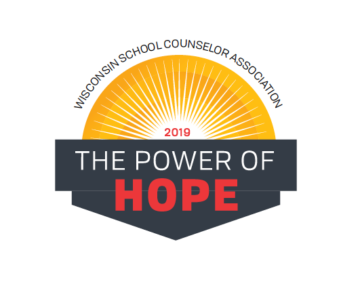 Monona Terrace Community & Convention Center
Monona Terrace Community & Convention Center
Madison, Wisconsin
Publications Committee
Looking for Volunteers!
Do you have an hour every other month to edit and proofread a WSCAlink article? Are you interested in finding a way to give back to the School Counselor community?
Email publications@wscaweb.org to find out more!
Professional Recognition and Scholarship Committee
The Professional Recognition and Scholarship Committee is looking for individuals to join our committee! The committee is in charge of reading the WSCA scholarships and professional recognition award nominations and in turn selecting the award winners! The committee needs individuals to help read applications, write press releases, create marketing and promotional materials, and so much more! Interested in joining the committee? Fill out this form!
Additionally, the Professional Recognition and Scholarship Committee is in search of Co-Coordinator for the position. Are you interested in a leadership position within WSCA? Contact Katie Nechodom for more information. scholarship@wscaweb.org.





